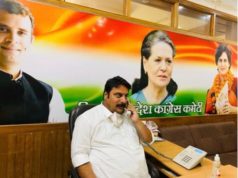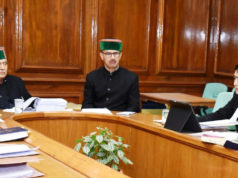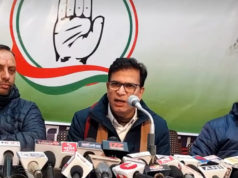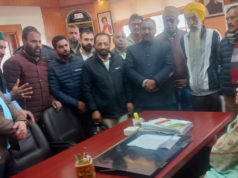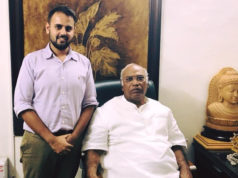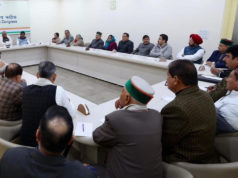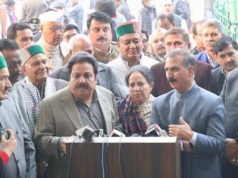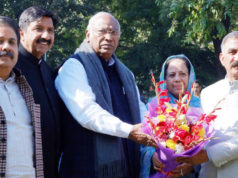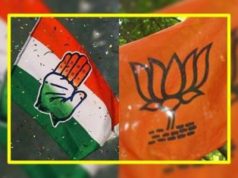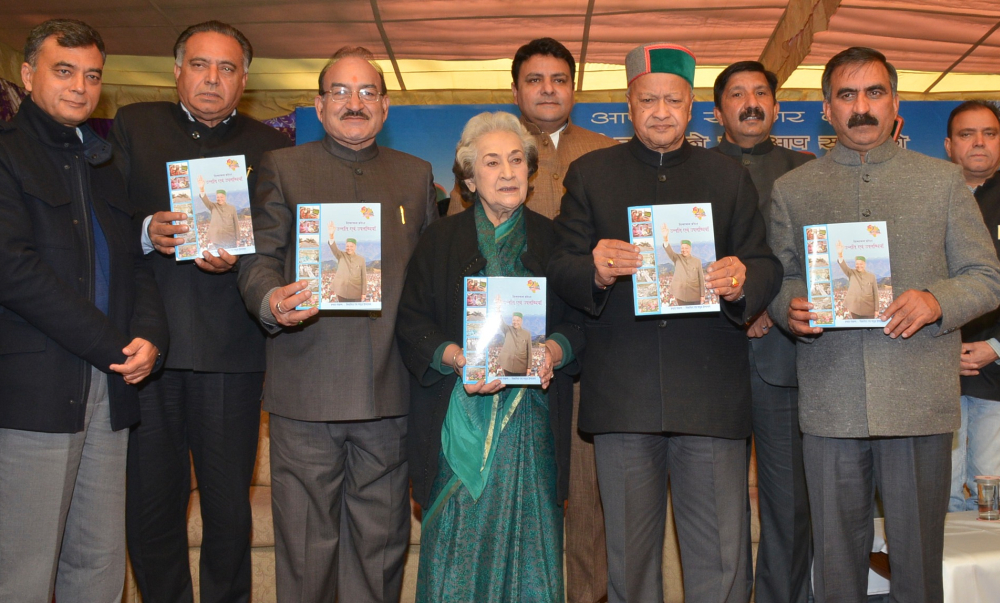In the lively precincts outside the Congress meeting hall in Shimla, an air of anticipation hung thick as party workers gathered, their conversations weaving into a tapestry of political reflections. As they awaited the emergence of their leaders engaged in a pivotal meeting, a nuanced discourse unfolded among the party faithful.
What emerged was a compelling chapter in the ongoing political drama – a reflection of the Congress workers’ sentiments on the party’s leadership. Within this bustling crowd, a sense of bewilderment mingled with a profound credit generously bestowed upon the venerable Gandhi family. It was acknowledged that, in the tumultuous seas of contemporary politics, the Gandhis had steered the party with an adept hand.
Amidst the vibrant buzz, a septuagenarian party worker emerged as a raconteur, spinning a narrative that traversed the annals of party history since the indomitable days of Indira Gandhi. His anecdotes, painted with vivid strokes, illuminated the political landscape with intriguing campaign stories. However, amidst the tales of yore, a singular line cut through the nostalgia, resonating with a profound truth: “We made him (Rahul Gandhi) Prime Minister, but not a leader.”
This arresting statement became the focal point of discussion, encapsulating a collective realization among the party faithful that the journey to leadership had taken unforeseen twists and turns. The narrative pivoted towards introspection, revealing the intricate challenge of grooming a political figure for the nation’s top office.
These reflections outside the meeting hall added depth to the ongoing dialogue about Rahul Gandhi’s political trajectory. They underscored not only a sense of loyalty and credit given to the Gandhi family but also a candid acknowledgement of the challenges faced in aligning leadership expectations with the dynamic reality of political dynamics.
As the party workers engaged in these conversations, the broader narrative of Rahul Gandhi’s enigma continued to evolve, revealing layers of complexity and introspection that would shape the Congress party’s path in the ever-shifting landscape of Indian politics.
Inside the Congress meeting hall, the stage was being set for a pivotal encounter, a microcosm of the grand political narrative that is Rahul Gandhi’s journey.
From the early days of his political career, Rahul Gandhi found himself thrust into the spotlight, nurtured by the Congress party workers to not only be a prominent figure but also to carry the mantle of a potential Prime Minister. Yet, the journey from political scion to charismatic leader proved to be a labyrinth of challenges.
As discussions unfolded among the party workers, the discourse extended beyond the strategic nuances of the upcoming elections. A critical lens was cast upon India’s foreign policy, with Congress party members vocalizing concerns about diplomatic missteps with China and a perceived failure on the global stage. In this milieu, Rahul Gandhi became entwined in the narrative of the party’s role in shaping India’s international standing.
However, the scrutiny went deeper, reaching the core of leadership dynamics within the Congress party. The narrative of Rahul Gandhi as a potential Prime Minister faced a poignant revelation – the distinction between a titular role and true leadership. The party workers, who had invested their hopes and aspirations in projecting Rahul Gandhi as the future face, now confronted the challenge of transforming him into a leader who could authentically connect with the diverse electorate.
The unfolding saga gained momentum against the backdrop of Prime Minister Modi’s strategic prowess. The ironic use of Modi’s words against Rahul Gandhi, such as the infamous ‘Factory of Making Gold from Potatoes,’ underscored the intricate dance of narrative manipulation in contemporary politics. It highlighted the need for a leader not just well-versed in policy but adept at navigating the art of political messaging.
As the political drama played out amidst the serene atmosphere of Shimla, the Congress party found itself at a crossroads. The impending elections demanded more than just a strategic candidate; they necessitated a leader capable of navigating the intricate maze of Indian politics. The journey from being designated as a Prime Minister to embodying true leadership became a transformative challenge for Rahul Gandhi, casting the spotlight not just on his potential but on his ability to connect with the masses authentically.
This unfolding saga within the Congress party reflects a broader narrative of a political entity seeking rejuvenation in the face of dynamic and ever-changing landscapes. Rahul Gandhi’s odyssey becomes emblematic of the challenges and complexities inherent in the pursuit of political leadership on the Indian stage.


